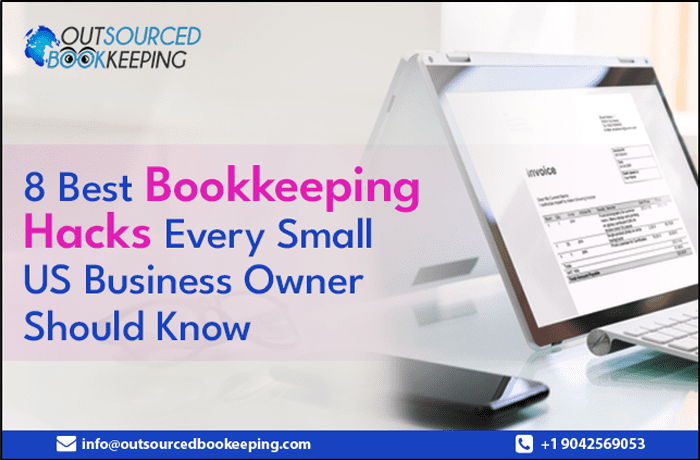Careful management of a small business’s finances is essential for financial health. Bookkeeping is an important aspect of ensuring the sustainability and growth of small businesses and startups in the US. Nevertheless, the work does not have to be hard.
With appropriate tactics and a couple of bookkeeping tricks, small company owners incur minimum costs and save a lot of time in managing their finances. Bookkeeping is a very essential area for every small business owner to know. This article will examine 8 useful bookkeeping stratergies that every owner of a small business ought to be aware of.

Invoice Promptly: The timeliness of business administration, including invoicing, is important. It involves fast billing of clients or customers after completing a project or selling goods. This practice has many benefits.
Firstly, it speeds up the payment cycle to make your payments faster received. Apart from that, prompt billing is seen as a way of demonstrating that you value your customers’ time and trust. The second reason is that it prevents the business from having a consistent flow of cash that enables continuity of business and investment.
Set a Schedule: Setting a timetable is a crucial step in efficient bookkeeping for small businesses. It entails establishing a consistent, organized schedule for financial chores. You may make sure that financial obligations are always satisfied by sticking to a timetable.
First, it lowers the danger of mistakes and oversights by keeping you organized and preventing financial duties from stacking up. By scheduling particular times for operations like data entry, billing, paying bills, and reconciliation, you can make sure that almost nothing is overlooked.
Create a Chart of Accounts: A crucial component of small business bookkeeping and accounting is the development of a chart of accounts (COA). In essence, this chart is a detailed description of all the accounts or categories you use to organize your financial operations.
Every financial transaction may be classified using a well-structured COA, which makes it simpler to keep track of, document, and comprehend where your money is coming from and going. Your COA can be altered to meet the particular requirements of your company, including accounting for specialized industries.
Track Receipts: This is a basic process in bookkeeping for small business and financial management where receipts for business expenses are recorded and stored systematically. Tangible receipt is the evidence of the sales transaction indicating what was bought when, and how much.
Receipts are essential as they help track expenses and identify areas where one should cut costs to enhance their financial status. In summation, traceable receipts aid in financial transparency and sound expenditure management giving small business managers the capacity to have precise records.
Categorize Expenses Carefully: Categorization enables tracking expenses associated with a specific vendor, thus helping managers negotiate better deals and monitor their business relationships. This is very important because they help in preparing income statements as well as balance sheets to determine your business’s profitability and financial position, respectively. Using accounting tips or software and seeking the advice of a professional accountant will improve the correctness and efficiency of this approach.
Regularly Review Financial Reports: Financial reports, such as income statements, balance sheets, and cash flow statements, offer a thorough overview of the financial performance and health of your company over a given time frame. Regular evaluations can help you identify financial concerns early so you can take appropriate action before they worsen.
You may evaluate your company’s financial performance with regular assessments, which will help you comprehend patterns in profitability, revenue growth, and areas where you could be overspending.
Use Cloud Storage: Modern bookkeeping services for small businesses depend heavily on the use of cloud storage. Your financial and business-related papers, records, and data are kept on distant servers that are accessed online through cloud storage. You may access your financial papers and information via cloud storage from any location that has an internet connection. Business owners who need to work remotely or access crucial financial information while on the road would particularly benefit from this.
Automate Data Entry: As it entails utilizing technology to simplify and hasten the process of documenting financial transactions, automating data input is a transformational practice in small business bookkeeping and accounting. The time and effort needed to manually input financial data are greatly reduced by automation.
Resources are therefore freed up for other crucial company operations. You can collect and record financial transactions automatically, giving you real-time knowledge of the financial state of your company.
Outsourced Bookkeeping provides expert advice and customized solutions for small business owners who want to streamline their bookkeeping and accounting procedures. Their team of industry professionals is knowledgeable about the particular difficulties encountered by small firms and can assist in streamlining financial administration while assuring accuracy, compliance, and cost-effectiveness if you are looking for bookkeeping consulting services. With their assistance, you can focus on what matters most professionally, which is growing your business.








